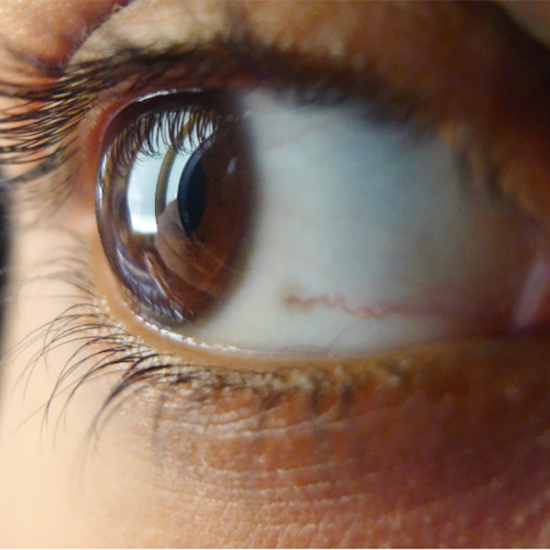The goGVHD Fund
Intro Heading link
The only established curative treatment for blood cancers, such as leukemia, lymphoma or myeloma, is to perform a bone marrow transplant. However, within a year after bone marrow transplantation, approximately 50% of patients develop severe inflammation of the ocular surface that presents as a painful dry eye. Patients describe the eye pain to be disabling and similar in intensity to the pain one experiences after chemical burns. This eye condition is termed ocular Graft-versus-Host Disease (oGVHD).
There are no approved therapies for treating ocular GVHD; thus, ocular GVHD represents an unmet medical need. To fill this gap, the University of Illinois Department of Ophthalmology has established a unique translational research program that makes feasible the discovery and development of novel treatments for ocular GVHD. This program comprises of a highly specialized ocular GVHD clinic for patient care, an advanced translational molecular biology laboratory for uncovering disease mechanisms, dedicated clinical trial center for developing new therapies and a highly motivated team who seamlessly connect these components. We seek your generous support and philanthropy to maintain this translational research ecosystem at the level that fosters innovation and excellence.
Make your Donation Heading link
Opportunity Heading link
Patients with ocular GVHD deserve the most effective ways to diagnose and treat the disease. Currently, there are no approved treatments for ocular GVHD, therefore, many novel therapies require compounding by an onsite pharmacy. Because these are off-label treatments, the coverage provided by health insurance is frequently inadequate. Therefore, some patients with ocular GVHD who are in need for these treatments are unable to get them. Our goals are to provide these treatments to all patients with ocular GVHD who need them irrespective of their ability to pay and to lead the next generation of innovation to cure this disease. Meeting these goals requires the generosity of many.
Funds donated to the ocular GVHD clinic will be used for the following purposes:
(1) Provide clinical care and therapies to patients with ocular GVHD who are unable to pay for these services
(2) Stimulate translational research for expeditiously bringing new therapies to the clinics
(3) Enhance educational opportunities in the area of ocular GVHD by creating a collaborative group comprising patients, caregivers and medical trainees
Clinical Care
We have established an ocular GVHD Clinic that provides expert consultation and an ocular GVHD-focused ophthalmological examination using validated and quantitative clinical assessments. The clinic houses state-of-the-art diagnostic equipment to assess the development and severity of the disease. We use customized therapies to treat ocular GVHD and novel biomarkers to assess the response to treatment. Under the direction of Sandeep Jain, MD, the ocular GVHD clinic transcends the scope of traditional ophthalmological practice to enable us to address the complexities of ocular GVHD management.
Transitional Research
We have made breakthroughs in our Translational Biology Laboratory to uncover mechanisms that lead to ocular GVHD and discovery of new potential treatments. We were the first to discover the role of neutrophil extracellular traps (NETs) in pathology of ocular GVHD. This has led to clinical trials funded by the National Eye Institute/NIH to assess the efficacy of the new therapies based on this novel mechanism of inflammation. We were the first group to propose the use of Brimondine, DNAse I and Sub-Anticoagulant dose Heparin eye drops for treating ocular GVHD. Based on our research, Brimonidine became the first drug to receive orphan drug designation for treatment of ocular GVHD by US FDA.
Education
In partnership with all major Chicago research universities (Northwestern, Loyola, University of Chicago and Rush University), we have established an interdisciplinary conference on ocular GVHD that is funded by the National Eye Institute/NIH. This conference helps to bridge numerous gaps, not only between ophthalmologists and hematologists/ oncologists, but also between medical centers within and outside of the Chicagoland area, and basic scientists and clinicians. The conference brings nationally recognized experts to Chicago to disseminate new findings in the area of chronic GVHD and fosters discussions amongst physicians, nurses, residents and medical students covering clinical, research and educational challenges and opportunities.

For more information, please contact: Heading link
Kristie DeKoker
In memory of Heading link
The goGVHD Fund has been established to honor the memory of Gauri Jain.